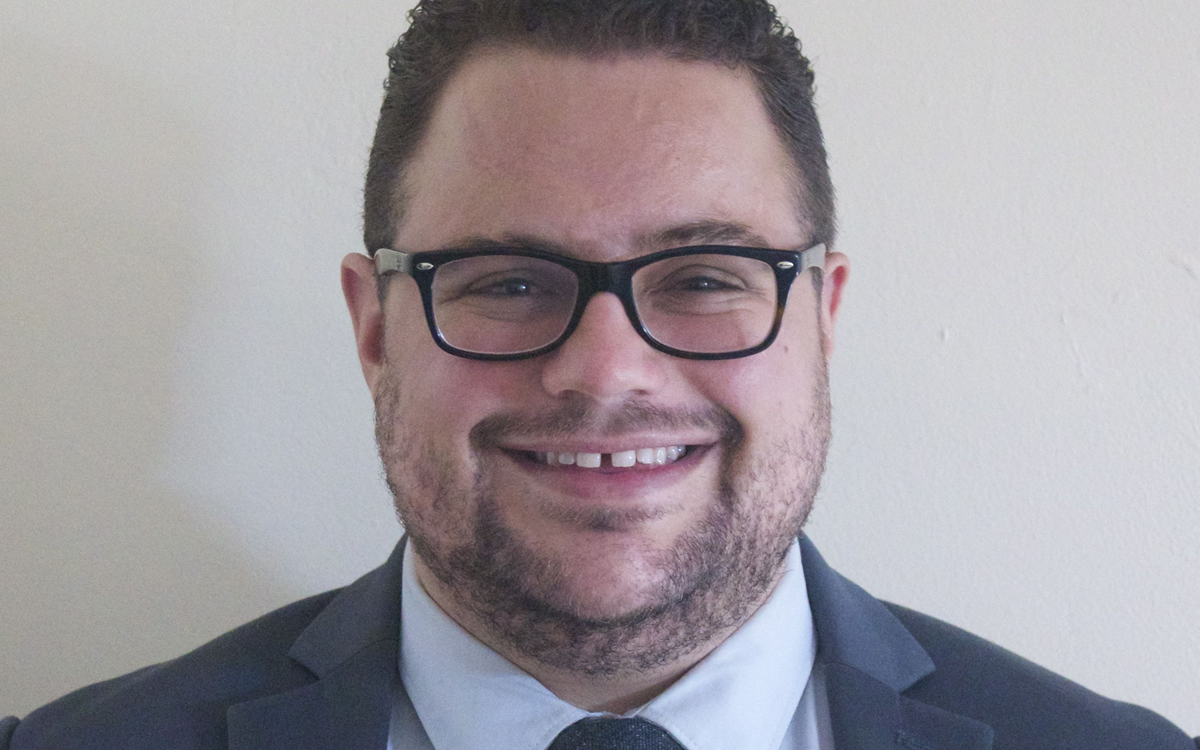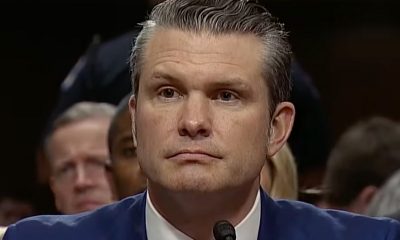National
‘Don’t Ask’ could get ‘more humane’ guidelines this week
Service members threatened with potential discharge under “Don’t Ask, Don’t Tell” may

Service members threatened with potential discharge under “Don’t Ask, Don’t Tell” may soon be able to breathe easier after Pentagon lawyers complete their assessment on finding a “more humane” way to implement the law.
The assessment, due for completion this week, is taking place because Defense Secretary Robert Gates tasked the Pentagon’s Office of the General Counsel to review the regulations for “Don’t Ask, Don’t Tell” to see if the Department of Defense could implement the law in a fairer manner.
After asking last year for a preliminary assessment for what he called a potentially “more humane” policy, Gates announced before the Senate Armed Services Committee on Feb. 2 the review would be complete in 45 days. Earlier this month, Jeh Johnson, the Pentagon’s top lawyer, said during congressional testimony the assessment would be finished on or around March 19.
But what these final changes will entail is unknown because information about them isn’t public. The Defense Department didn’t respond to DC Agenda’s request to comment on the new regulations.
Also unknown is the timing for when the Pentagon will unveil these changes, as well as how long it would take for Gates to implement them once he receives the recommendations.
Repeal advocates say they’re unsure what Pentagon lawyers will ultimately produce, but have issued recommendations for changing the application of “Don’t Ask, Don’t Tell” under the current statute.
Aubrey Sarvis, executive director of the Servicemembers Legal Defense Network, said his organization provided the Defense Department in July with a list of possible changes that could be made.
Among these changes are mandating evidence when a possible violation of “Don’t Ask, Don’t Tell” comes from a fellow service member and not a civilian; eliminating anonymous tips as the basis for the start of an inquiry; and requiring that alleged homosexual conduct on which any discharge is based occurs after a service member joined the armed forces.
“And actually, Secretary Gates and Adm. Mullen referred to all six of those at the Feb. 2 hearing, but we don’t have any concrete intelligence as to what Mr. Johnson may or may not be recommending to the secretary,” Sarvis said.
During that testimony, Gates raised some possibilities on what the changes could entail. He said the Pentagon could raise the level of the officer who initiates or conducts inquiries, as well as what constitutes a credible source to start an investigation.
Gates also told lawmakers the Defense Department can “reduce the instances” in which a service member is outed by a third party under “Don’t Ask, Don’t Tell.”
Alex Nicholson, executive director of Servicemembers United, said the actual benefit to gay soldiers of eliminating third-party outings is unknown because reliable information on why service members are expelled isn’t available.
“Anybody can sort of venture to guess based on their experience and anecdotal evidence,” he said. “But it’s really hard to do that with authority or credibility because we don’t have any statistics on how many discharges are the result of self-initiated outings, how many are the results of third-party outings and how many are the result of behavior being discovered.”
Aaron Belkin, director of the Palm Center, a think-tank on gays in the military at the University of California, Santa Barbara, said if such changes are enacted, it would eliminate important problems, but still wouldn’t address other issues.
“One is you’re not going to be able to eliminate all discharges,” he said. “Two, as long as the law is on the books, you’ll still have the sword hanging over gay people’s heads, and it’s that sword that makes it difficult for them to do their job.”
Belkin said new regulations also won’t change how “Don’t Ask, Don’t Tell” damages the military “symbolically and reputationally” simply by being on the books.
During the Feb. 2 hearing, Gates said as part of these changes the Pentagon would “devise new rules and procedures” in light of the 2008 Ninth Court of Appeals ruling in Witt v. Air Force, which challenged the constitutionality of “Don’t Ask, Don’t Tell.”
The decision, which was construed to only apply to the plaintiff, determined the Pentagon needed to prove lesbian Maj. Margaret Witt’s sexual orientation was a detriment to unit cohesion in order to discharge her from the Air Force.
Applying the heightened Witt standard on a national basis was one of SLDN’s recommendations for a change under current law. Sarvis said such an application would help the Defense Department “create uniformity” in all “Don’t Ask, Don’t Tell” discharge cases.
But Belkin said he doesn’t think the Pentagon would apply the Witt standard on a national basis because it would be too big of a change.
“I would doubt that the Defense Department would take a judicial ruling that applies to one circuit and use regulation to expand its scope to the whole military,” he said. “I think that’s too big of a step for a regulatory tweak.”
Whatever changes the Pentagon makes, advocates maintain legislative repeal of “Don’t Ask, Don’t Tell” is the only way to properly address the law.
If the Pentagon implements the changes SLDN recommended, Sarvis said it would “go a long ways,” but “wouldn’t diminish the need for Congress to repeal ‘Don’t Ask, Don’t Tell.’”
Sarvis said legislative repeal is particularly needed so any conservative administration following President Obama couldn’t reverse the changes made under the existing statute.
“The next secretary and a new administration could come along and make revisions that he or she may feel they have authority for under the current statute,” he said. “That’s why I go back to changes to the regulations are not a substitute for repealing the statute.”
U.S. Supreme Court
Supreme Court to hear Md. religious freedom case on Tuesday
Advocacy groups to rally outside during Mahmoud v. Taylor oral arguments

Activists on Tuesday will hold a rally in front of the U.S. Supreme Court as the justices hear oral arguments in a case that will determine whether schools are violating parents’ religious freedom by not letting them opt their children out of learning about LGBTQ-specific topics.
Mahmoud v. Taylor is a case out of Montgomery County about parents who wish to opt their children out of LGBTQ-themed lessons in public schools for religious reasons.
Montgomery County Public Schools, after initially allowing parents to opt their children out, changed the policy in March 2023.
The plaintiffs — Tamer Mahmoud, Enas Barakat, and other parents — argue “the storybooks were chosen to disrupt ‘cisnormativity’ and ‘either/or thinking’ among students.”
“The board’s own principals objected that the curriculum was ‘not appropriate for the intended age group,’ presented gender ideology as ‘fact,’ ‘sham[ed]’ students with contrary opinions, and was ‘dismissive of religious beliefs,’” according to the petition on the Supreme Court’s website.
The petition goes further, saying the parents are “not challenging the curriculum, but arguing that compelling their elementary-age children to participate in instruction contrary to their parents’ religious convictions violated the Free Exercise Clause. Construing Wisconsin v. Yoder, the 4th Circuit found no free-exercise burden because no one was forced ‘to change their religious beliefs or conduct.’”
The Coalition for Inclusive Schools and Communities, an organization that aims to bring together “advocates, educators, families, and organizations committed to inclusive, affirming, fact and science-based education,” will participate in the “Rally for Inclusive Education” rally outside the Supreme Court alongside Live In Your Truth and the Montgomery County Pride Family.
“Inclusive education isn’t just a value — it’s a necessity,” said Phillip Alexander Downie, co-chair of the Coalition for Inclusive Schools and Communities and CEO of Montgomery County Pride Family. “The right of every child to learn in an environment where they see themselves reflected, affirmed, and respected is under attack. This rally is our moment to protect that right — and ensure future generations inherit classrooms rooted in truth, equity, equality, and justice.”
The Coalition for Inclusive Schools and Communities says the rally is a “nonpartisan community gathering rooted in education, advocacy, and solidarity.”
“The focus of this event is to uplift the importance of inclusive learning environments, celebrate the power of diversity in our schools, and amplify the voices of those most impacted by exclusionary practices and rhetoric,” it said.
The rally will feature speakers from across the country, including students, educators, civil rights leaders, and authors who will give their own testimonies as to why it is important to have inclusivity in primary education. Trans Maryland, the National Women’s Law Center, MoCoPride Center, and Authors Against Book Bans are among the LGBTQ groups sponsoring the event.
National
EXCLUSIVE: Rodrigo Heng-Lehtinen to step down from Advocates for Trans Equality
A4TE formed last year when two transgender rights groups merged

Advocates for Trans Equality Executive Director Rodrigo Heng-Lehtinen on Monday announced he will step down on April 30.
The Transgender Legal Defense and Education Fund and the National Center for Transgender Equality formed Advocates for Trans Equality last year when they merged. Heng-Lehtinen was previously NCTE’s executive director.
“Now that we’ve made it through the merger, and A4TE is established as a new, prominent institution fighting hard for trans equality, it’s time for me to take my next step,” said Heng-Lehtinen in a press release that Advocates for Trans Equality sent exclusively to the Washington Blade. “When Andy (Hong Marra) and I began envisioning the merger, I committed to seeing it through. I’m proud that now our vision has been realized. A4TE has not just launched, but is fully up and running, delivering results for trans people around the country. With A4TE gaining momentum, I’m now ready to move on to my next chapter.”
Heng-Lehtinen, whose mother is former Florida Congresswoman Ileana Ros-Lehtinen, in the press release stressed he “will be focusing on changing hearts and minds.”
“With my background in persuasion and messaging, it’s where I can make the biggest difference, and what I feel called to return to in this era of anti-trans backlash,” said Heng-Lehtinen. “I will still be fighting shoulder-to-shoulder with everyone (in) the trans movement, simply in a different capacity.”
Marra, who is Advocates for Trans Equality’s CEO, praised Heng-Lehtinen and said the organization’s work will continue.
“We thank Rodrigo for his years of dedicated leadership and service,” said Marra. “A4TE will continue to deliver on our promise to advocate for the lives of trans people who need us now more than ever. We remain undaunted by our endeavor to ensure trans people and our families are no less than free and equal and treated with dignity and respect.”
Louisiana Trans Advocates Executive Director Peyton Rose Michelle also praised Heng-Lehtinen.
“Rodrigo has been a steady hand and a bright light in this work,” she said. “He’s someone who shows up with integrity, kindness, and a deep commitment to meeting this political moment with courage. I’ve always felt deeply supported and heard by him, which is something I value deeply.”
“I fully support him as he steps into this new chapter, and I know his clarity of vision and heart-forward leadership will keep shifting this landscape back toward justice for trans people, and therefore, all people,” added Michelle.
U.S. Federal Courts
Federal judge blocks Trump passport executive order
State Department can no longer issue travel documents with ‘X’ gender markers

A federal judge on Friday ruled in favor of a group of transgender and nonbinary people who have filed a lawsuit against President Donald Trump’s executive order that bans the State Department from issuing passports with “X” gender markers.
The Associated Press notes U.S. District Judge Julia Kobick in Boston issued a preliminary injunction against the directive. The American Civil Liberties Union, which represents the plaintiffs, in a press release notes Kobick concluded Trump’s executive order “is likely unconstitutional and in violation of the law.”
“The preliminary injunction requires the State Department to allow six transgender and nonbinary people to obtain passports with sex designations consistent with their gender identity while the lawsuit proceeds,” notes the ACLU. “Though today’s court order applies only to six of the plaintiffs in the case, the plaintiffs plan to quickly file a motion asking the court to certify a class of people affected by the State Department policy and to extend the preliminary injunction to that entire class.”
Former Secretary of State Antony Blinken in June 2021 announced the State Department would begin to issue gender-neutral passports and documents for American citizens who were born overseas.
Dana Zzyym, an intersex U.S. Navy veteran who identifies as nonbinary, in 2015 filed a federal lawsuit against the State Department after it denied their application for a passport with an “X” gender marker. Zzyym in October 2021 received the first gender-neutral American passport.
The State Department policy took effect on April 11, 2022. Trump signed his executive order shortly after he took office in January.
Germany, Denmark, Finland, and the Netherlands are among the countries that have issued travel advisories for trans and nonbinary people who plan to visit the U.S.
“This ruling affirms the inherent dignity of our clients, acknowledging the immediate and profound negative impact that the Trump administration’s passport policy would have on their ability to travel for work, school, and family,” said ACLU of Massachusetts Legal Director Jessie Rossman after Kobick issued her ruling.
“By forcing people to carry documents that directly contradict their identities, the Trump administration is attacking the very foundations of our right to privacy and the freedom to be ourselves,” added Rossman. “We will continue to fight to rescind this unlawful policy for everyone so that no one is placed in this untenable and unsafe position.”
-

 State Department5 days ago
State Department5 days agoHIV/AIDS activists protest at State Department, demand full PEPFAR funding restoration
-

 Brazil5 days ago
Brazil5 days agoUS lists transgender Brazilian congresswoman’s gender as ‘male’ on visa
-

 District of Columbia5 days ago
District of Columbia5 days agoCapital Pride wins $900,000 D.C. grant to support WorldPride
-

 Obituary4 days ago
Obituary4 days agoLocal attorney, LGBTQ rights advocate Dale Sanders dies at 75













